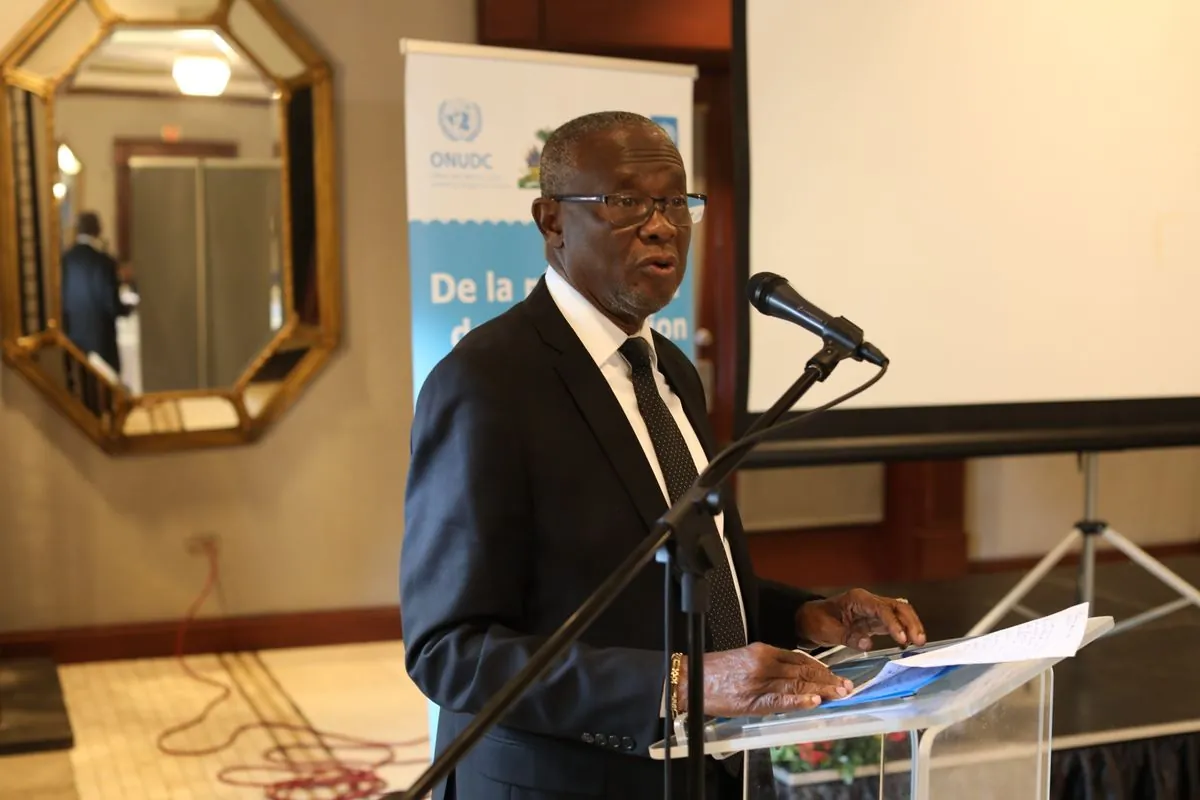Haiti's Anti-Corruption Unit Exposes Multimillion-Dollar Government Fraud
Haiti's anti-corruption agency unveils cases of government misconduct, including misuse of school food funds and fuel theft. The exposed frauds total $4.7 million, surpassing the agency's budget.

In a significant development in Haiti's ongoing battle against corruption, the country's Anti-Corruption Unit has revealed several cases of government misconduct involving millions of dollars. The announcement comes as Haiti, the poorest nation in the Western Hemisphere, continues to grapple with widespread corruption and political instability.
Hans Joseph, the general director of the Anti-Corruption Unit, presented evidence implicating high-ranking government officials in various illicit activities. The total cost of these corruption cases to the Haitian government amounts to $4.7 million, a sum that paradoxically exceeds twice the budget allocated to the agency for combating corruption.
One of the most alarming cases involves the National School Food Program. Investigators found that between October 2016 and February 2021, officials purchased $2.9 million worth of food. However, a sample of 11 schools across Haiti revealed that the majority "barely received anything." This revelation is particularly troubling given that Haiti currently has over a million people on the brink of starvation and struggles with a literacy rate of only 61%, one of the lowest in the Caribbean.

Another case implicates the National Solid Waste Management Service. The agency's general director, Germain Paulémon, and other officials are accused of misusing fuel purchased for the agency's operations. Out of $1.7 million spent on fuel between December 2021 and April 2024, only 45% was used for the agency's daily operations, with the rest allegedly diverted for personal use.
The Anti-Corruption Unit also opened a case against former minister of planification and external cooperation, Aviol Fleurant, following a petition signed by over 4,900 people. Fleurant is accused of illegal enrichment, with authorities questioning the origin of more than $570,000 in his bank accounts.
These cases highlight the pervasive nature of corruption in Haiti, which ranks 170 out of 180 countries in the 2023 Corruption Perceptions Index. The country's struggle with corruption is compounded by its long history of political instability and natural disasters, including the devastating 2010 earthquake that severely damaged the capital, Port-au-Prince.
Despite the Anti-Corruption Unit's efforts, Haiti rarely prosecutes government officials for corruption. This impunity has contributed to the country's ongoing economic struggles, including a high unemployment rate estimated at over 40% and heavy dependence on remittances from Haitians working abroad.
Hans Joseph emphasized the agency's commitment to cleaning up public administration, stating, "The work that we do and that we intend to execute against all odds is that of cleaning up the public administration." However, the task remains daunting in a country facing significant environmental challenges, including deforestation and soil erosion, alongside its political and economic issues.
As Haiti continues its fight against corruption, the country's rich cultural heritage, including its unique art, music, and Vodou religion, stands in stark contrast to its governmental challenges. The Anti-Corruption Unit's recent revelations serve as a reminder of the ongoing struggle to build a more transparent and accountable government in this Caribbean nation of 11.4 million people.
[[Germain Paulémon, National Solid Waste Management Service general director]]
"As a general director, I find it normal to use the institution's cash register to support myself."


































